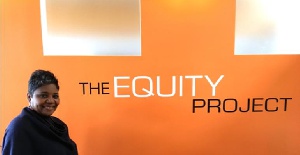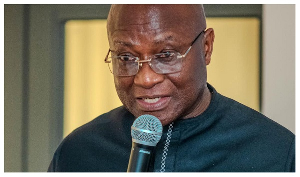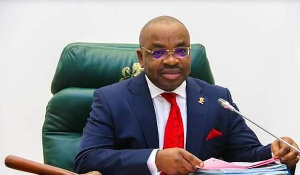Referent power, one of the five key attributes Dr. Mosby Tyler mentioned in her presentation, caught my attention. It caught my attention not because I was hearing it for the first time.
In fact, it caught my attention simply because of the way she described it, although she did not necessarily do so in a contextual generality of American sociologists Bertram Raven’s and John French’s conceptualization of it.In her presentation, Dr. Tyler simply referred to referent power as a constituent of “the Five Bases of Social Power.”
An interesting aspect to my position here though, with particular regard to my understanding of her presentation, afore-mentioned, is that I have always acknowledged variants of this captivating typology of power, otherwise called referent power, as a defining force to reckon with, and, accordingly, deemed it a necessary focal point for any useful discourse that tends to focus on it as a foundational chaperonage of power dynamics in the specific spheres of professional and non-professional relationships.
In other words, I have always practiced it throughout my professional and non-professional existence without being aware it has been a focus of vigorous intellectual or academic inquiry. This can be inferred from her simplistic intellectualization of the subject matter.
Yet the concept itself is not strange to African philosophy, traditional or otherwise (academic). In fact, the late Nelson Mandela and Desmond Tutu fundamentally captured this idea in what they called “ubuntu.” Ubuntu encompasses reciprocity and neighborliness as it relates to expressions of respect.
Also inherent in this progressive idea, of ubuntu, is the moral urge to uphold the worthiness and dignity of the human person without political, racial and ethnic, religious, and gender biases. It does really not matter what the contextual expression of this idea really is, whether professional or non-professional.
Put simply, reciprocity or mutuality of respect takes precedence over other defining priorities of interlocking social-political responsiveness in an otherwise enabling environment of power dynamics and human civilization.
That is to say, I view referent power essentially as the engine of progressive psycho-socialization.
And yet whether this is expressed as social power rather than political power is open to debate. I say this because Dr. Tyler’s presentation did not make this seeming dichotomy clear enough.
Other times though, this seeming dichotomy could be experientially nebulous because what may rigidly pass for the social and the political in a certain sense, for one person, far from the rambling immediacy of perceptual actuality in another sense, for another person, is merely a dodgy question of what actually constitutes undecipherable overlaps in the seamless continuum of the human condition.
The central point of the preceding is that the matrix of professional and non-professional relationships is as much political as social.
And it is not always easy separating one from the other. Clearly, I do not use “political” in a traditional Machiavellian sense.
Rather, I see it as embodying intended/unintended calculations likely to resolve into a relationship of unequal dichotomy.
Combining expert power and referent power is always the best.
WHO IS DR. MOSBY TYLER?
Dr. Nita Mosby Tyler is the Chief Catalyst and Founder of The Equity Project, LLC – an organization designed to support organizations and communities in building diversity, equity and inclusion strategies. She is the former Senior Vice President and Chief Inclusion Officer for Children’s Hospital Colorado – the first African American woman to hold that position in the organizations 100+ year history…
Dr. Mosby Tyler has had a strong academic presence here in Colorado, as a popular guest lecturer at The University of Denver, University of Colorado, Regis University and many other social, political and community organizations. Dr. Mosby-Tyler has a vast, 32-year background in human resources, diversity & inclusion, training and operations management. She has held leadership roles at AT&T, Kaiser Permanente in Georgia and Colorado-regions, the McKesson Corporation and Statline…
Dr. Mosby Tyler has received many local and national awards for her service and leadership accomplishments including recognition from U.S. Department of Health And Human Services, US Department of Agriculture, Denver Business Journal, United Healthcare, Aurora Chamber of Commerce, Human Rights Campaign, Community College of Denver, National Diversity Council, Mountain Region Black Economic Summit, City and County of Denver, Aurora Police Department, Denver Health, Denver Sheriff Department, Colorado Black Women for Political Action and the Denver Metro Chamber Leadership Foundation.
Dr. Mosby Tyler holds a doctorate in the field of Organizational Leadership, a Master of Arts degree in Management and a Bachelor of Science degree in Education.
Opinions of Monday, 25 September 2017
Columnist: Francis Kwarteng



















